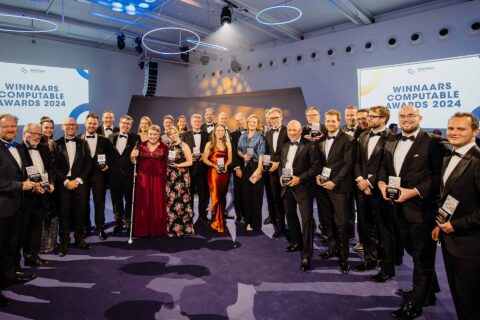How to choose the best treatment for a specific patient during a brain hemorrhage or cerebral infarction? Professor Henk Marquering of Amsterdam UMC thinks the digital twin can answer this question. With a European grant of 10 million euros, he hopes to realize this groundbreaking innovation in the coming years.
"With this project, we want to start testing treatment for individual stroke patients first on a digital twin," Marquering, professor of translational artificial intelligence, said on the Amsterdam UMC website. "The doctors can see in the simulation which treatment works and which does not."
Personalized care
With the introduction, Amsterdam UMC hopes to take a big step toward truly personalized care. "Every patient is different, every brain infarct is different and every treatment has pros and cons," Marquering explains. "We can already predict pretty well for larger groups how it works on average. But what we cannot yet do is really select the best treatment patient-specifically. By creating on the computer a likeness of the patient's brain, on which treatments can be tested, a doctor will soon be able to see exactly which treatment is effective for that patient."
Working prototype digital twin
Called "Gemini" (Latin for twin), the project should deliver a working prototype in four years. The Gemini project is a cross-border undertaking. A total of 12 countries are participating in the consortium carrying the project.
In addition to the 10 million euros from the European Union, two partners from Switzerland and a partner from Taiwan are jointly contributing another 3 million euros. Each partner from the twelve participating countries is contributing a share of its own expertise in the field of computer simulation and medicine. Amsterdam UMC is leading the research. With good reason, Marquering explains. "In stroke care, the Netherlands is very much at the forefront. As a result, we have more data on treatment can than elsewhere."
Virtual recreating
When it comes to the medical application of digital twins, French IT company Dassault Systèmes is a major player. The concern, which has its roots in aerospace, prides itself on being the inventor of concept of "twinning" or "modélisation numérique." In other words, the digital three-dimensional recreation of concepts, processes or objects in the virtual domain. Researchers can thus test at will without real life consequences and filter out design errors early.
Duplicate of the human heart
One of Dassault Systèmes' most notable medical applications is the Living Heart, or in other words, a digital duplicate of the human heart. Dutch Health Hub visited Dassault Systèmes headquarters last year to learn about this and other medical applications.
The ambitions don't lie, as evidenced by the explanation of Claire Biot, VP of Life Sciences & Healthcare Industry. "If we can create a digital twin of the human heart, we can do the same of other organs."
The end goal is a complete Virtual Twin Experience of the Human Body. By continuously feeding this virtual doppelganger with digital measurement data and new scientific insights from genome studies, for example, person-centered precision medicine is within everyone's reach, Biot said.
Read more:
Virtual twin shows care path to sustainability
Virtual care: risk-free tinkering with organs












